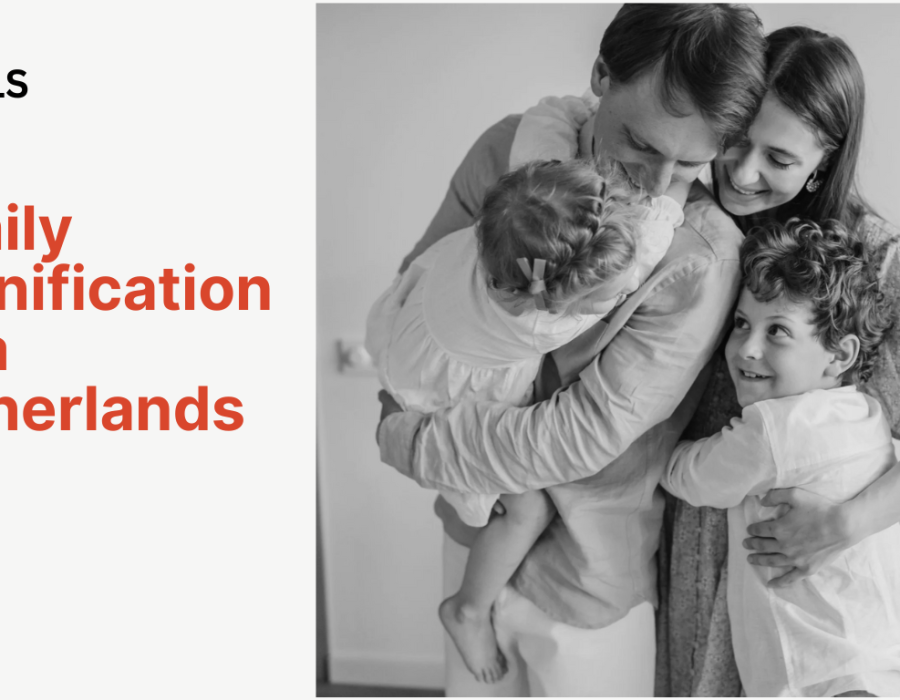Family Reunification in the EU: Understanding the Process and Benefits
Family reunification is a vital aspect of immigration law that enables family members to join their loved ones who are legally residing in an EU member state. Whether you're a spouse, registered partner, child, or dependent, understanding the process and benefits of family reunification is essential for making informed decisions about your future. This blog post will walk you through the purpose, eligibility, process, and advantages of family reunification in the European Union.
What Is Family Reunification?
Family reunification refers to the process by which family members of a person who is legally residing in an EU country can join them. This process allows families to stay together, providing stability and support, while fostering a stronger sense of community and integration within the host country.
The EU has specific laws and directives that govern family reunification to ensure that it is fair and consistent across member states. Directive 2003/86/EC on the right to family reunification outlines the minimum standards that EU countries must adhere to when processing applications for family reunification. While EU countries can apply additional requirements, the directive ensures that the fundamental rights of families are protected.
Who Is Eligible for Family Reunification?
Eligibility for family reunification typically depends on the status of the person residing in the EU and the relationship between them and their family members. Below are the key groups of eligible family members:
1. Spouses and Registered Partners
Married partners and those in registered partnerships are eligible for family reunification. The marriage or partnership must be legally recognized by the host country and must generally be valid at the time of the application.
2. Children
Dependent children, including biological, adopted, and stepchildren, are eligible for family reunification. In most cases, children must be under 18, but some EU countries may extend this eligibility to adult children if they are dependent on the sponsor due to health issues or other special circumstances.
3. Parents
In some cases, parents of the resident in the EU can apply for family reunification, especially if they are financially dependent on the sponsor. This is more common when the sponsor is a minor or when parents can prove they rely on the resident for essential support.
4. Other Dependents
Other relatives, such as siblings or grandparents, may be eligible for family reunification under certain conditions, usually if they are financially dependent on the sponsor and live under the same roof.
Key Benefits of Family Reunification
1. Emotional and Psychological Stability
One of the primary benefits of family reunification is the emotional support that being with loved ones provides. Families are better equipped to adapt to new environments and face challenges when they are together.
2. Improved Quality of Life
Family reunification can lead to a higher standard of living for all members involved, as the family unit can work together to build a stable and prosperous life. Access to healthcare, education, and social services also enhances the overall well-being of the family.
3. Social Integration
Reuniting with family members helps individuals integrate more effectively into society. Support from family can help individuals learn the local language, understand cultural norms, and participate more actively in the community.
4. Access to Rights and Benefits
Family members who join the main sponsor in the EU may have access to the same rights and benefits as the sponsor, including healthcare, education, and social welfare. This facilitates a smoother transition and encourages integration into the host country's social fabric.
The Family Reunification Process: How Does It Work?
Step 1: Determine Eligibility
Before beginning the process, the sponsor (the person residing in the EU) must ensure they meet the eligibility requirements for sponsoring their family members. This often involves having a valid residence permit, proof of sufficient income to support the family, and health insurance coverage.
Step 2: Prepare Required Documentation
The sponsor will need to gather the necessary documents to support the application. These documents may include:
- Proof of identity (e.g., passport)
- Proof of residence status in the host country
- Marriage or partnership certificate
- Birth certificates for children
- Proof of income or financial stability
- Health insurance coverage
Step 3: Submit the Application
The application for family reunification can often be submitted at the local immigration office in the EU country or at the relevant embassy or consulate in the family member’s home country. Each EU member state has its own procedure, so it’s important to check the specific requirements for the host country.
Step 4: Wait for Processing
Processing times for family reunification applications can vary depending on the country and the complexity of the case. The sponsor and the family members should be prepared for potential waiting periods and should regularly check for updates on their application status.
Step 5: Receive a Decision
Once the application is processed, the authorities will issue a decision. If approved, the family members will receive a visa or residence permit to join the sponsor in the EU. If denied, the authorities must provide reasons, and the sponsor may have the right to appeal the decision.
Challenges in the Family Reunification Process
1. Financial Requirements
One of the main challenges families face is proving sufficient financial resources to support the reunification. The sponsor typically needs to demonstrate a stable income that meets a minimum threshold set by the host country. This can be difficult for individuals with irregular income or temporary residence status.
2. Documentation and Bureaucracy
Family reunification applications often require a significant amount of paperwork. Ensuring that all documents are valid, properly translated, and meet the requirements of the host country can be time-consuming and complex.
3. Language and Integration Requirements
Some EU member states may require sponsors and their family members to meet certain language proficiency or integration criteria. While these requirements are intended to help the family integrate smoothly, they can present a challenge for those who do not speak the local language.
Tips for a Successful Family Reunification Application
- Consult Immigration Experts: Navigating the family reunification process can be complex, so consulting with an immigration lawyer or expert can help you understand the specific requirements and avoid potential pitfalls.
- Keep Documents Organized: Make sure all documents are complete, translated if necessary, and meet the requirements outlined by the host country.
- Plan Ahead: Given potential processing delays, it’s wise to start the application process as early as possible.
- Demonstrate Financial Stability: Prepare clear proof of income and other financial resources to show that you can support your family members.






Comments